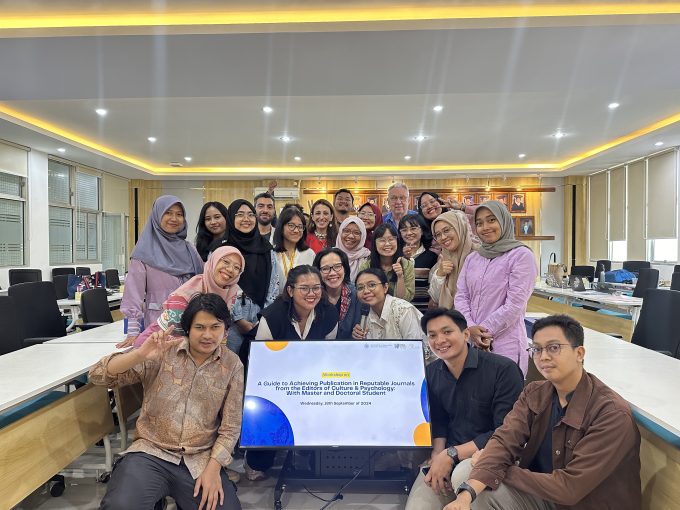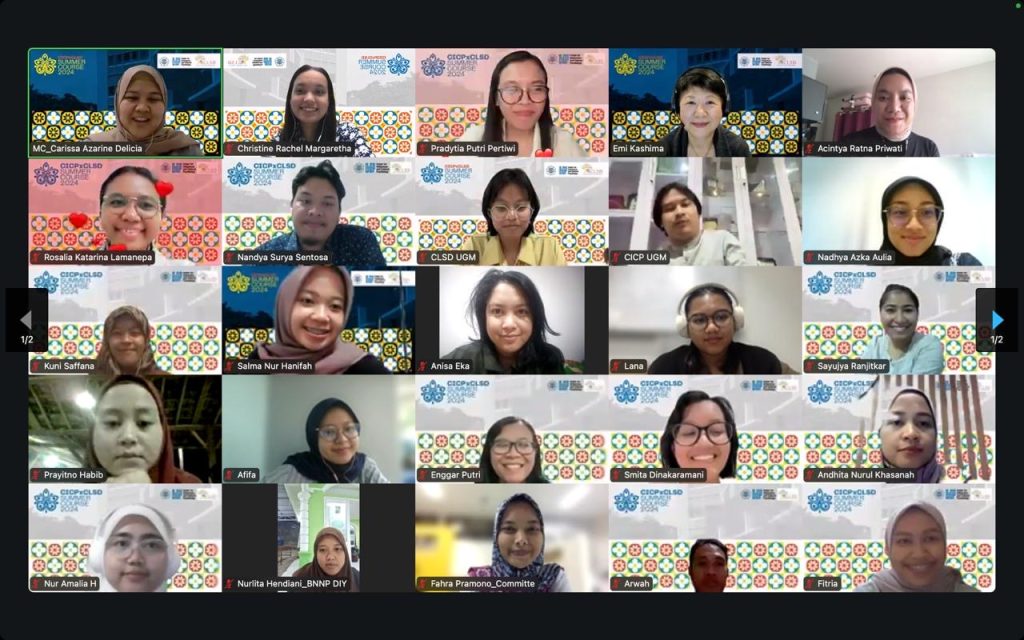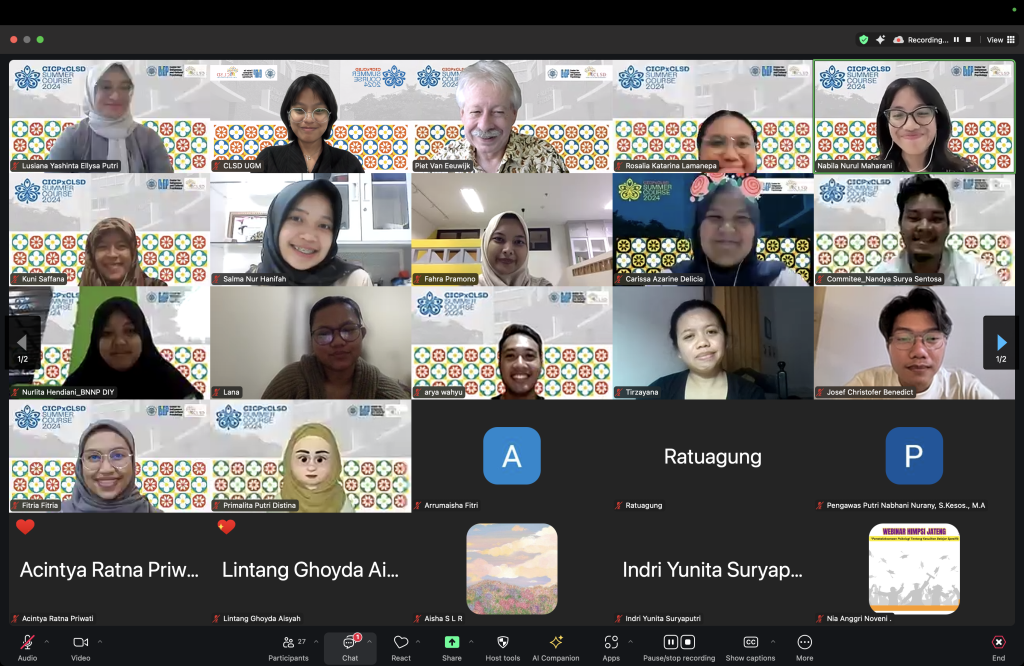
For a period of two months, the Center for Life-Span Development (CLSD) collaborated with the Center for Indigenous and Cultural Psychology (CICP) to organize a summer course event titled International Summer Course on Cultural Dynamics and Life-Span Development: Research Approaches and Practical Interventions. Collaborating with a panel of experts from Indonesia and around the world, this summer course focuses on helping students gain an understanding of the role culture plays in life-span development as well as offering valuable insights into current research methodologies and approaches relevant to cultural and lifespan development.
We invited nine international speakers and five national speakers with various backgrounds and fields of expertise from various parts of the world, such as Denmark, Italy, Australia, Malaysia, and the United States. This course is attended by 47 students, 43 from Indonesia and 4 from various countries such as Denmark, Germany, Nepal, and Australia.
The course is divided into 3 modules. The first module, titled Understanding Culture and Life-Span Development: Concept and Current Perspectives focuses on the paradigm of culture and how its context is correlated with today’s global conditions. It also focuses on the influence of the global north-global south paradigm, digital interactions as well as the climate crises on life-span development. The first module is constructed to fulfill Sustainable Development Goals (SDGs) such as Good Health and Well-Being (3), Quality Education (4) and Reduced Inequalities (10).
The first session of the first module was held with both an online and offline session on Tuesday, 17 September 2024. The event was carried by the Master of Ceremony of the session, Christine Rachel Margaretha and opened by Rahmat Hidayat, S.Psi., M.Sc., Ph.D., who is the dean of the Faculty of Psychology. The session begins with an introductory video on the profiles of CLSD and CICP, followed by the main event, a lecture carried out by Prof. Jaan Valsiner from Aalborg University, Denmark and Prof. Giuseppina Marsico from the University of Salerno, Italy on the topic of Redefining Culture in current context. Prof. Valsiner starts with debunking the 4 gaps of existing thinking in psychological science. After explaining the gaps, he then explains the new aspects of a “new general psychology”. He then emphasizes that researchers often use a two-dimensional method to explore the human mind, in which he uses a new method, shaped after a kleinian geometry to illustrate it. The rest of the material is then explained by Prof. Marsico, in which she explains the cultural psychology of the bordering process. The session ended with a Q & A session.
The second session was conducted with both an online and offline session the next day, with the speakers still the same but with a different topic; (Global North–Global South) culture interactions and how it shapes life-span development. Prof. Valsiner starts this session by arguing that psychology in general needs more data. He then began explaining the important features of the methodology cycle. Examples include basic assumptions, or meta-codes, which are used to build theories, such as the assimilation theory and the proculturation theory. He also tells the students that research needs more “doubt”, which is done to reduce enforced fixed opinions. Prof. Marsico continues the lecture by explaining the Global North-Global South culture interactions and why it is important. The session ends with Prof. Valsiner & Prof. Marsico explaining their project proposal called “The Global South Network of Cultural Psychology”.

The third session was conducted on Thursday, 19 September 2024 with the topic Polyculturalism in understanding lifespan development in current society by Prof. Emiko Kashima from La Trobe University, Australia. The session started with Prof. Kashima explains Lay cultural theory and diversity ideologies, such as polyculturalism. After that, she starts to dissect the exact meaning of culture, specifically focusing on how cultural influences are “selected” through different cultural traditions. Prof. Kashima also elaborates on the topic of multiculturalism, specifically its benefits, differences, limitations, etc. The session continues with Prof. Kashima explaining cultural identity. The session ends with Prof. Kashima showing the correlation between polyculturalism and cultural identity.

The final session of this module was held on Friday, 20 September 2024 with the topic A critique of life course intervention by Prof. Peter van Eeuwijk from the University of Basel, Switzerland. He starts the session by critiquing the definitions of lifespan and intervention. He also critiques the World Health Organization’s conventional life course model. Prof. Eeuwijk also mentions his experience using longitudinal and transversal research methodologies. During the session, Prof. Eeuwijk asks the students what is the most important factor on life quality. He ends the session by explaining about vulnerability, resiliency, and agency by using case studies. The end of Prof. Eeuwijk’s session also marks the end of the first module of the International Summer Course. [MWK]
